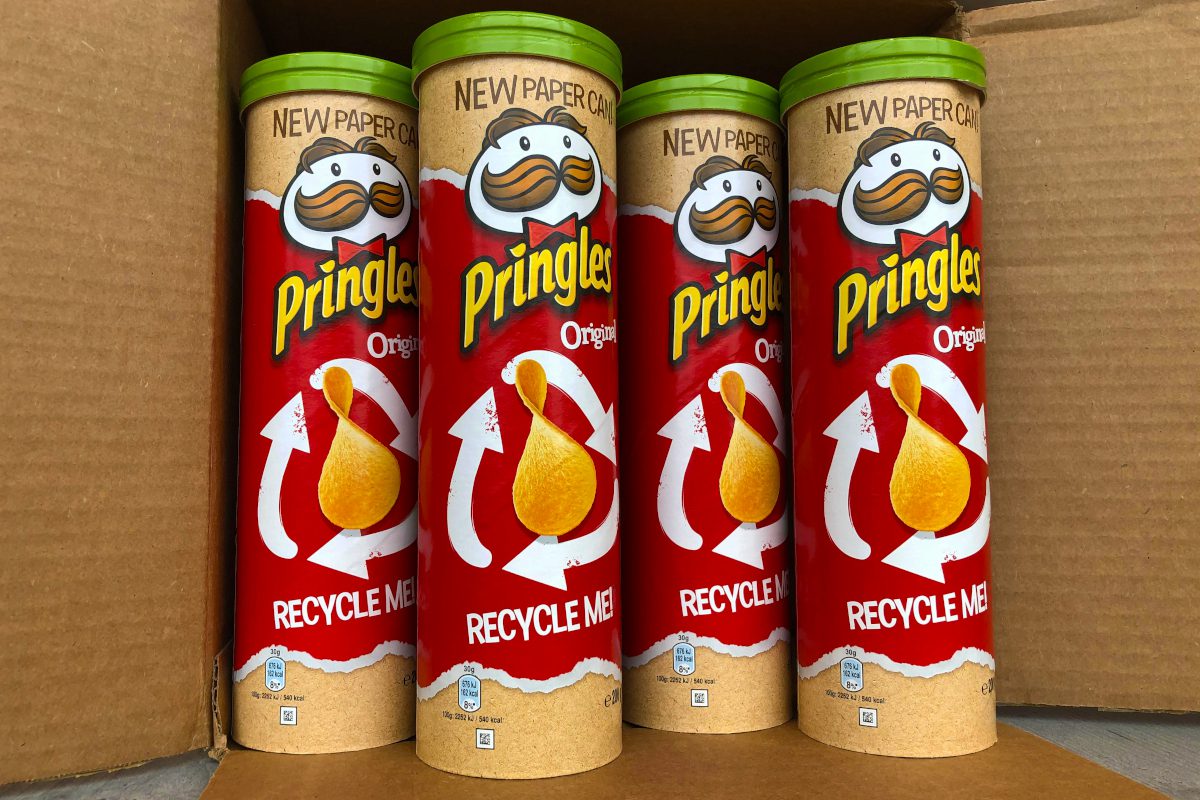
News that Kellogg is trialing a new paper can has been welcomed by The Recycling Association as a “step in the right direction”.
In 2017, The Recycling Association chief executive Simon Ellin highlighted Pringles for having packaging that was almost impossible to recycle due to its multi-material nature. Pringles cans are made of paper, a plastic and metal lining, steel base and plastic cap.
Kellogg’s is now undertaking a trial of a predominantly paper-based can at a limited number of Tesco stores in East Anglia. This involves a can that is mostly paper with the same plastic and metal foil lining. It is also trialing two types of lids, one made from paper and one from plastic.
Simon Ellin said: “It is great to see Kellogg taking a step in the right direction with this new Pringles can. To be fair to Kellogg, since I highlighted how difficult it is to recycle Pringles cans, they have been happy to engage to look at ways they can make their products more recyclable.
“This new Pringles tube that is being trialed is a big improvement on its predecessor as it is much easier to recycle.
“However, we have always maintained that it is easier to recycle packaging based on as few materials as possible. For us, the plastic lid has to be a big no because the lid needs to be made from the same material as the can in order to make it as recyclable as possible. Due to the nature of Pringles where people will eat them outdoors at beaches and picnics etc, there is more scope for littering with a plastic lid too.
“Also, we hope that Kellogg will investigate alternatives to the plastic and metal lining in the can, especially as technology is evolving to allow water soluble ones that are more suited to the paper pulping process.
“With the Confederation of Paper Industries and WRAP guidelines ideally preferring the plastic content being no more than 5% of the pack weight, any efforts to remove or replace the plastic lining would be welcomed.
“But credit where it is due, this trial shows that Kellogg is looking to do the right thing and its aim to have its packaging reusable, recyclable or compostable by the end of 2025 is a goal The Recycling Association is happy to help it achieve.”







